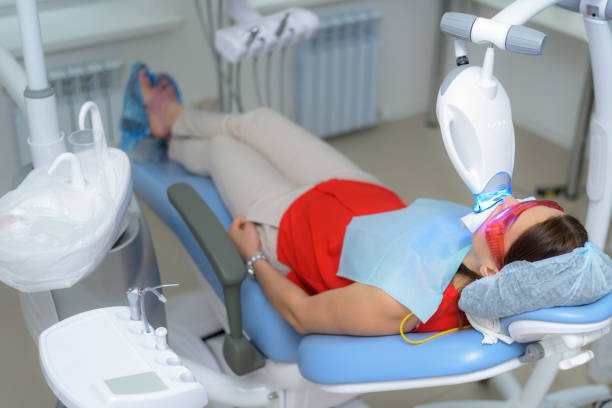
Guide to Sleep Apnea Treatment: Achieving Relief and Better Sleep
Have you ever woken up feeling exhausted, even after a full night’s sleep? You might be dealing with sleep apnea, a common disorder that interrupts breathing during sleep. Understanding the underlying causes and symptoms is key to finding effective treatments and getting that much-needed restful sleep.
Types of Sleep Apnea
There are primarily three types of sleep apnea:
-
Obstructive Sleep Apnea (OSA): This is the most common form, occurring when throat muscles relax excessively.
-
Central Sleep Apnea: Here, your brain fails to send the right signals to muscles that control breathing.
-
Complex Sleep Apnea Syndrome: A combination of both obstructive and central sleep apnea.
Common Symptoms
Sleep apnea symptoms can vary but generally include loud snoring, gasping for air during sleep, a persistent dry mouth when you wake up, morning headaches, insomnia, and excessive daytime sleepiness. If you notice these symptoms, consulting a healthcare professional is advisable.
Why Is Diagnosis Crucial
Diagnosing sleep apnea is a multi-step process, often involving a physical examination, a review of your medical history, and specialized sleep tests. Sleep studies, either at a sleep center or at home, are crucial in this process. After diagnosis, a sleep apnea treatment plan can be customized to meet your specific needs.
Behavioral Modifications
Before jumping to technical solutions, small lifestyle changes can make a significant difference in managing sleep apnea.
-
Weight Loss: Shedding extra pounds can help reduce constriction of the airway.
-
Positional Therapy: Sleeping on your side can prevent the tongue and soft tissues from collapsing into the airway.
-
Avoiding Alcohol and Smoking: Both of these can exacerbate symptoms, so minimizing them may improve your sleep quality.
CPAP Machines and Alternatives
A Continuous Positive Airway Pressure (CPAP) machine is one of the most common treatments for sleep apnea. It uses a hose connected to a mask or nosepiece to provide constant airflow, keeping your airways open during sleep. While effective, some may find CPAP machines uncomfortable, leading them to seek alternatives.
Alternative Devices
If CPAP is not suitable, other devices like mouthguards designed by a general dentist in Dublin can be considered. These appliances work by keeping the throat open and may be preferred for their portability and ease of use.
Bilevel Positive Airway Pressure (BiPAP)
BiPAP machines are similar to CPAPs but offer different pressure settings for inhalation and exhalation, which can be more comfortable for some users. They are typically used in cases where CPAP fails to provide adequate relief.
Advanced Treatment Options
For those with severe sleep apnea or who find traditional treatments ineffective, advanced treatments are available.
Surgical Procedures
When other treatments have failed, surgery might be an option. It can involve tissue removal, jaw repositioning, or nerve stimulation to improve airflow.
Upper Airway Stimulation
This involves surgically implanting a device that stimulates the nerves controlling the tongue’s movement. It’s a more invasive option but can be beneficial for those unable to tolerate CPAP therapy.
Weight Management Surgeries
For individuals with obesity-related sleep apnea, weight management surgeries like gastric bypass can sometimes alleviate symptoms by facilitating weight loss, thus reducing the strain on the airway.
Integrative and Holistic Approaches
Beyond medical interventions, holistic health practices can offer additional support in managing sleep apnea.
Herbal Remedies and Supplements
Certain herbs and dietary supplements aim to promote better sleep and reduce inflammation. However, it’s crucial to discuss these options with a healthcare provider to avoid potential interactions with other medications.
Mind-Body Practices
Techniques like yoga, mindfulness, and meditation can support stress reduction and overall relaxation, potentially decreasing apneic episodes and improving sleep quality.
Exploring Treatment in Different Regions
Access to effective treatment varies depending on location and availability of specialized practitioners.
Locating High-Quality Care
When searching for a high-quality dentist in Dublin, Ohio or elsewhere for oral appliance therapy, be sure to consider their experience and patient reviews. Personalized care and expertise can significantly impact treatment outcomes.
Availability of Services
In places like Ohio, sleep apnea treatment options are plentiful due to the presence of various reputable clinics and specialists. Being in proximity to well-known healthcare facilities can provide a broader array of treatment modalities for patients.
Finding the Right Solution
Discovering the most effective treatment for sleep apnea involves trial and error, personal research, and consultation with healthcare professionals. It’s about finding what works best for your unique situation.
Consulting with Specialists
Never underestimate the value of consulting with a team of experts, including sleep specialists, general dentists, and other medical professionals. Their input can be invaluable in crafting a comprehensive treatment plan tailored to your needs.
Regular Monitoring and Adjustments
Effective management of sleep apnea is an ongoing process. Regular follow-ups with your healthcare provider ensure that adjustments can be made to your treatment plan as needed, ensuring you achieve optimal results over time.
Final Thoughts
Managing sleep apnea requires a blend of personalized treatment plans, lifestyle changes, and, sometimes, more advanced medical interventions. With the right approach, relief and restful sleep are entirely attainable. Explore the options with an open mind, and don’t hesitate to reach out for professional help along the way. Sleep well, live well.
